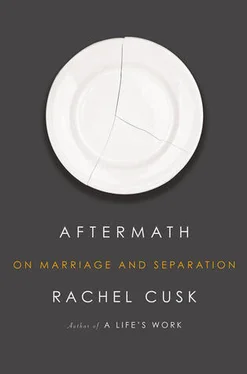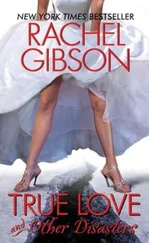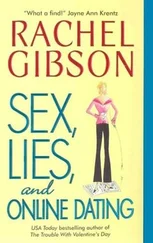Rachel Cusk - Aftermath - On Marriage and Separation
Здесь есть возможность читать онлайн «Rachel Cusk - Aftermath - On Marriage and Separation» весь текст электронной книги совершенно бесплатно (целиком полную версию без сокращений). В некоторых случаях можно слушать аудио, скачать через торрент в формате fb2 и присутствует краткое содержание. Год выпуска: 2012, Издательство: Farrar, Straus and Giroux, Жанр: Публицистика, Биографии и Мемуары, на английском языке. Описание произведения, (предисловие) а так же отзывы посетителей доступны на портале библиотеки ЛибКат.
- Название:Aftermath: On Marriage and Separation
- Автор:
- Издательство:Farrar, Straus and Giroux
- Жанр:
- Год:2012
- ISBN:нет данных
- Рейтинг книги:3 / 5. Голосов: 1
-
Избранное:Добавить в избранное
- Отзывы:
-
Ваша оценка:
- 60
- 1
- 2
- 3
- 4
- 5
Aftermath: On Marriage and Separation: краткое содержание, описание и аннотация
Предлагаем к чтению аннотацию, описание, краткое содержание или предисловие (зависит от того, что написал сам автор книги «Aftermath: On Marriage and Separation»). Если вы не нашли необходимую информацию о книге — напишите в комментариях, мы постараемся отыскать её.
Aftermath: On Marriage and Separation — читать онлайн бесплатно полную книгу (весь текст) целиком
Ниже представлен текст книги, разбитый по страницам. Система сохранения места последней прочитанной страницы, позволяет с удобством читать онлайн бесплатно книгу «Aftermath: On Marriage and Separation», без необходимости каждый раз заново искать на чём Вы остановились. Поставьте закладку, и сможете в любой момент перейти на страницу, на которой закончили чтение.
Интервал:
Закладка:
I feel a certain sympathy for Oedipus. His story expresses what to me seems the central human tragedy, the fact that we lack knowledge of the very things that drive us to our fate. We do not fully know what it is that we do, and why. Oedipus did not know that his wife was also his mother. He did not know that the rude stranger he killed at the crossroads was his father. Yet he was punished for these acts as though they had been conscious. There were people — Oedipus’s adoptive parents, for instance — who did know something of his origins but did not disclose it. It is a kind of authority, this hidden knowledge. Sometimes, when my children have done something wrong, I pretend that I don’t know it; I wait to see whether they will find their own path to contrition, their own way to make amends. But what if they don’t? I have to tell them that I know, that I saw, and in doing so somehow the truth passes from me to them. My authority is no longer truthful; the truth becomes the truth of their own acts.
In Oedipus Rex every kind of authority is damaged by precisely this process. Leadership and masculinity, the concept of family, marriage itself: all has become a perversion, the sibling bond turned murderous, motherhood mutated into self-destruction. The world Creon has inherited is a post-authority, post-familial world: it is aftermath, and Creon has the job of governing it. But how do you make people obey you, respect you, believe in you and in the new reality you represent? Creon’s idea is that you give commands and then don’t turn back on them, no matter what — a strategy the modern parent, presiding over chaos and unrule, occasionally adopts, only to find themselves insisting on a course of action long after its necessity and even its rationality have passed. This is more or less Creon’s fate. The body of Polylectes, Oedipus’s son, is still lying where it fell at the city limits. Creon decides he needs to send out a strong message of disapproval of the Oedipal household, in order to mark his separation from it. He proclaims that Polylectes will not be buried, but instead must lie there to rot, picked at by ravens and wild animals. No one is allowed to touch the body. The punishment for doing so will be death.
Antigone is Polylectes’s sister, daughter of Oedipus and Jocasta. She inhabits an aftermath of her own: hers has been the experience of intimate loss. Her family has been atomised; questions of identity, of moral choice, that might once have been family matters have devolved to her. She has been awoken and forced into active being. She has become herself, yet this self has been contaminated by the drama of her parents. Therefore she is only as good as what she does, as what she chooses to do. And what she chooses to do is bury Polylectes, because having thought about Creon’s edict she can find no justice or logic in it. She challenges his authority with an emotional authority of her own that has stronger links with justice, with truth. Creon asks, astonished, whether she realises the punishment for her act will be death. Isn’t she afraid to die? No, she replies, she isn’t afraid of death. What she’s afraid of is neglecting to do something that she knows to be right. Doesn’t she realise she’s breaking the law? he says. It was only you who made that law, she replies. Why should I obey it?
‘Now she would be the man, not I, if she defeated me and did not pay for it,’ Creon says to himself. ‘Though she [is] my niece, or closer still than all [my] family, she shall not escape the direst penalty.’ And so Creon manoeuvres himself into a position where his authority will directly attack and destroy what he himself loves and values the most, in order to nourish and sustain itself. He summons Teiresias the seer for reassurance. Creon believes Teiresias to be wise, prizes his advice, as one prizes the advice of certain friends until they say what you don’t want to hear. And Teiresias, indeed, gives him the darkest warnings: ‘Once more you tread the razor’s edge,’ he says. What he means is that Creon’s authority is recreating the very perversity from which it was born. It has become the form that imprisons truth and must be broken. Creon falls out with Teiresias and insults him in every possible way, but afterwards he is more honest with himself. This, after all, is aftermath, the second harvest: life with knowledge of what has gone before. He admits that he is frightened. He admits that what frightens him most is the idea that he will have to sacrifice himself in the name of authority, that true responsibility is an act of self-destruction.
‘To yield is very hard,’ he says. ‘But to resist and meet disaster, that is harder still.’
In the school holidays I take my children horse riding in Devon. Their desire to ride horses is so consistent it almost seems impersonal. It seems to be something I can bank on.
I rent somewhere to stay near a riding school where they will ride every day. I drive west, through unfamiliar hills. I am shaking with nerves; in fact, I can’t remember what it feels like to be at ease. This ceaseless effort to manufacture normality is a kind of forger’s art, so laborious compared with the facility that created the original. It is a fine evening and the sun slants long and golden from the horizon. For me these voyages are like the first outings of the Vikings into the mystery of the ocean, by turns terrifying and thrilling: I have no idea what will happen, what we will find. It is the idea that we won’t find anything at all that terrifies me. Yet what exactly we are looking for I don’t know.
At a service station we stop, and stand in the car park drinking hot chocolate with the sharp western sunset in our eyes. The place we are going is a picturesque country town near Dartmoor: everyone seems to agree it’s lovely there, though I’m not sure anyone I spoke to had actually been. Like tales of America, these were the rumours that drew us from the safety of home. But I feel buoyed up all the same, by the obliging beauty of the landscape and by the feeling — so powerful and so fleeting, so hard to understand or defend — that we have been liberated from the strictures of some authority and are free. I don’t identify this authority as my husband: the authority is marriage itself, and in these moments of liberty I feel him to be just as browbeaten by it as me, feel, almost, that I could conscript him into my own escape and reencounter him there, in non-marriage, both of us free.
It is dark by the time we get to the town. The place is deserted: at the house the owner has left us a scribbled note and a key. We stand on the long, sloping cobbled street with our bags. Through the darkness comes the sound and smell of water. A broad river is just below us: it turns like a dark snake in its courses; its black surface gleams. The town is a soundless heaped outline in the night, of roofs and spires and well-kept streets. Its beauty and its desertion are unnerving. It is as though some disaster has just occurred here and all the people have run away.
Inside, the house is a dank-smelling labyrinth of corridors and fire doors. There is torn carpet underfoot and heaps of junk and old furniture piled against the walls. Instantly I know that it has found me out, chaos, malevolent disorder: for the past few months it has shadowed me and I have fended it off, day and night, and now it seems I have opened the door to it. The thing is, I believe in chaos now: it’s normality I’ve lost faith in. It transpires that we have not rented the whole house but only a section of it: the note directs us upstairs, up steep tenebrous staircases boxed in by irregular partition walls to a door at the top. We let ourselves into a dark flat. The electric lights reveal a crush of brown furniture, some beds with padded floral headboards, some gilt-framed posters of rural scenes. I decide that I’ve over-reacted. I decide there’s nothing actually intolerable here.
Читать дальшеИнтервал:
Закладка:
Похожие книги на «Aftermath: On Marriage and Separation»
Представляем Вашему вниманию похожие книги на «Aftermath: On Marriage and Separation» списком для выбора. Мы отобрали схожую по названию и смыслу литературу в надежде предоставить читателям больше вариантов отыскать новые, интересные, ещё непрочитанные произведения.
Обсуждение, отзывы о книге «Aftermath: On Marriage and Separation» и просто собственные мнения читателей. Оставьте ваши комментарии, напишите, что Вы думаете о произведении, его смысле или главных героях. Укажите что конкретно понравилось, а что нет, и почему Вы так считаете.












